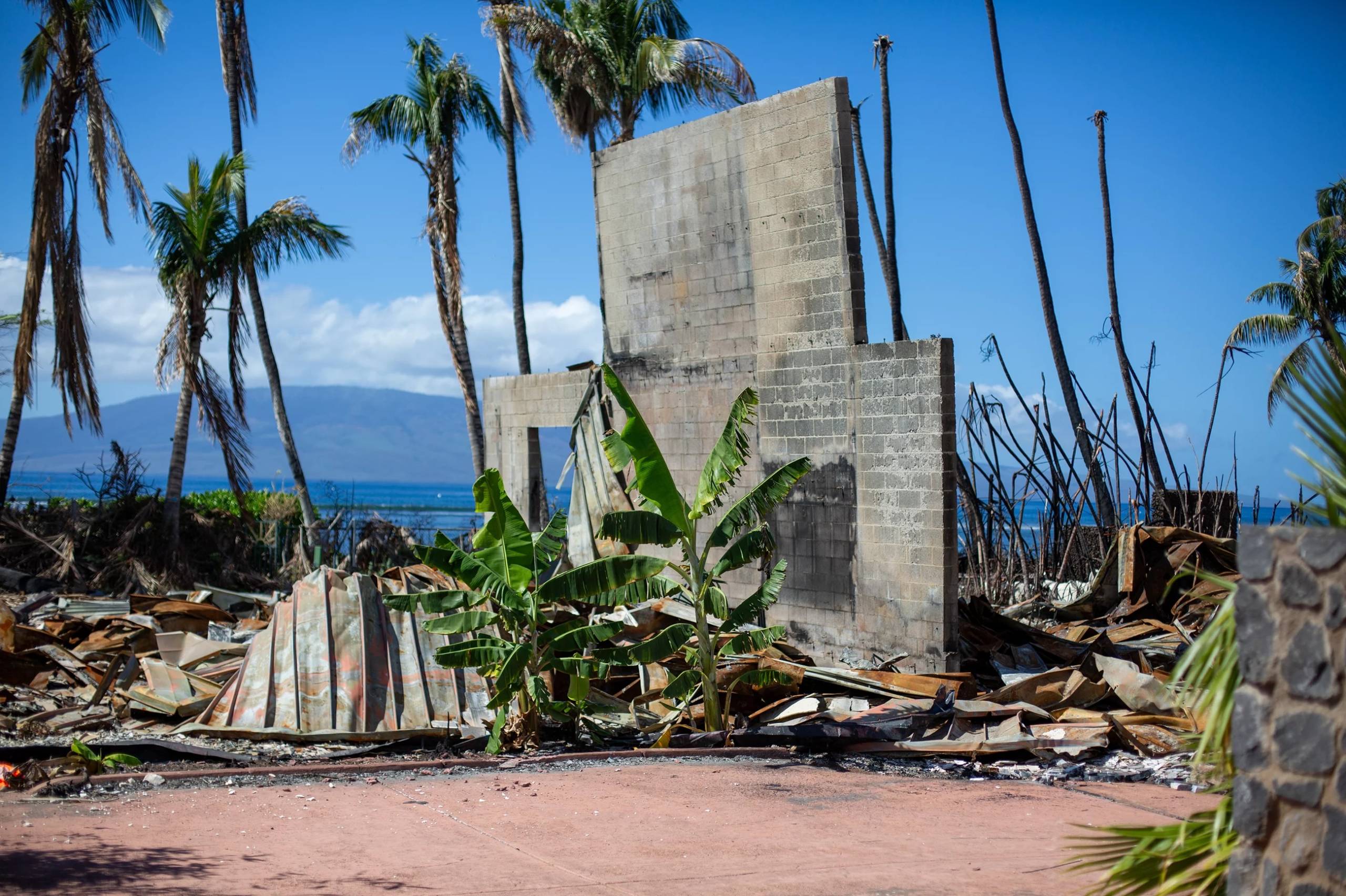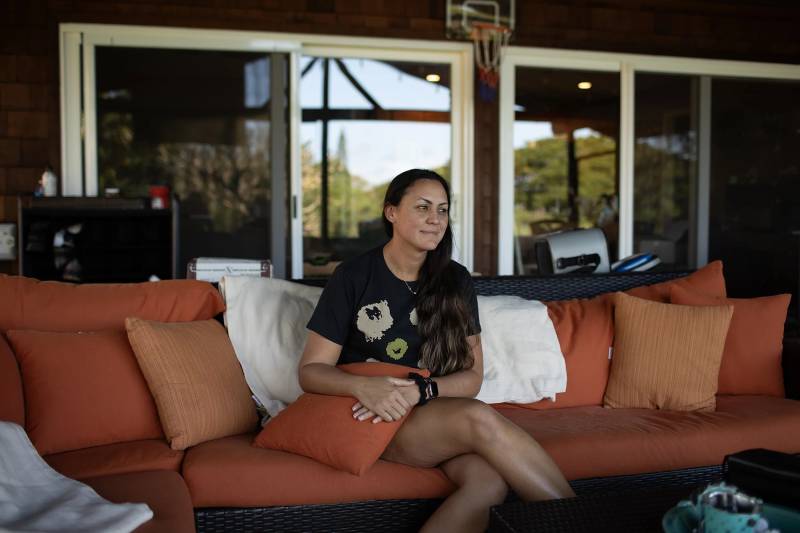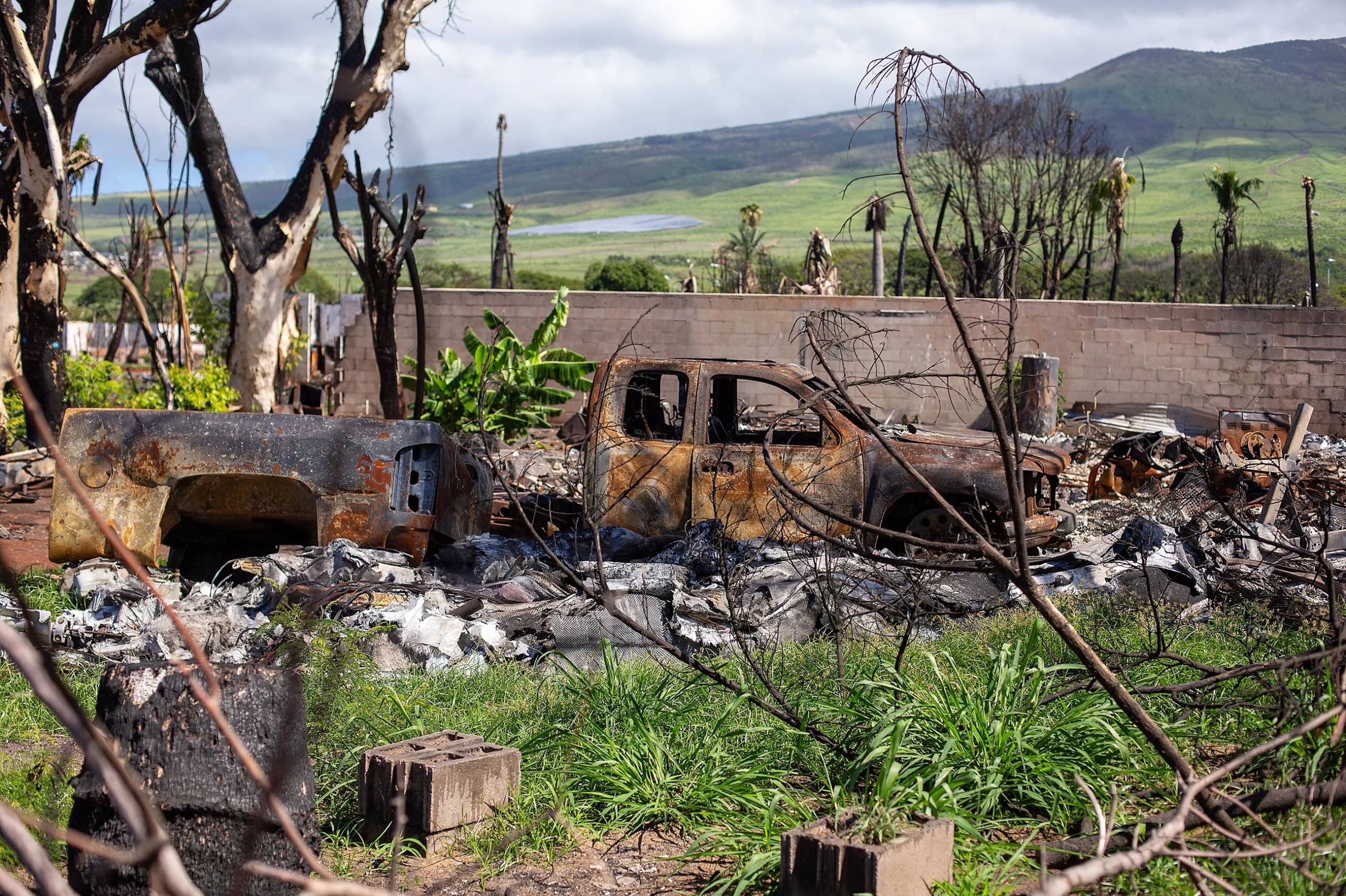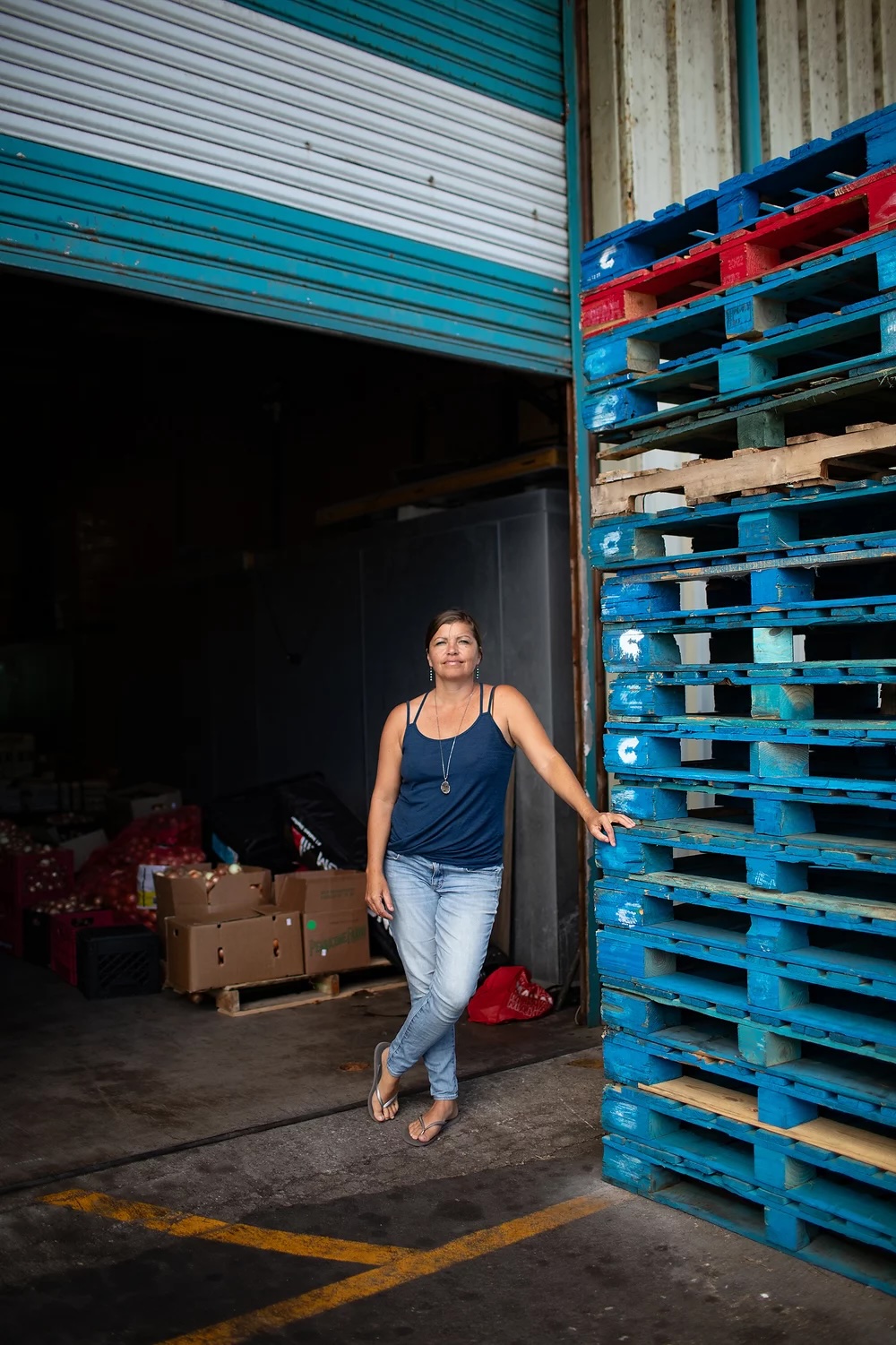Several months after Mikey Burke’s house burned down in Lahaina, her husband got a text message out of the blue. It was an offer to buy their property with no inspections.
“He’s gotten a couple of those,” Burke says. “Fighting against speculators and large developers coming in is nothing new for us, but we’ve never had it where it’s been this important to our very being as this community.”
Burke and her family are among hundreds in Lahaina who are navigating the long and arduous process of rebuilding. More than seven months after the wildfire that took 101 lives, hundreds of properties are still covered in piles of debris.
Some fire survivors have moved into rental properties outside Lahaina. Others are finding new jobs or schools elsewhere on Maui or in the continental U.S. Many Lahaina residents worry that developers will buy up properties as they become available, changing the makeup of a community that was once the historic capital of the Hawaiian Kingdom.
“If we have enough of that happening, the village we grew up in is not going to be the village that we want to raise our kids in,” Burke says. “This community is so important to who we are.”

Now, some community members are working on a way to buy properties so they can remain affordable and available to local residents. It’s a nonprofit community land trust modeled after ones used around the country for affordable housing. Land trusts purchase properties and then sell or rent the houses. When the homes are for purchase, the trust keeps ownership of the land they’re built on, so the overall sale price is less than comparable homes.
Community land trusts have emerged in a handful of other places recovering from disasters, like Houston and the Florida Keys after both places were hit by hurricanes. The challenge is mobilizing financial resources in time to purchase properties in the crucial years post-disaster when properties go up for sale.
“The number of units destroyed that are housing people affordably always outnumbers the amount that you rebuild,” says Steve Kirk, president of Rural Communities, an affordable housing nonprofit affiliated with the Florida Keys Community Land Trust. “There are individuals and corporations with strike capital that can step into that void and acquire that land.”

Challenges to rebuilding
Life is still in upheaval for Burke and her family. For months after the fire, her family of four kids and four dogs lived in two hotel rooms. Recently, they moved into a longer-term rental north of Lahaina. Her kids go to a Hawaiian language immersion school right next to the burn zone, so all four are doing distance learning by computer from home.
They’re still grappling with memories from the day of the fire. As the smoke approached their house, Burke loaded the kids into the car. But the traffic was at a standstill in the rush to evacuate Lahaina. They watched as the flames kept getting closer.
“I was telling the kids: if mommy opens the door, you run straight and you run to the ocean,” she says. “I will never forget that feeling because I didn’t know if it was OK.”




